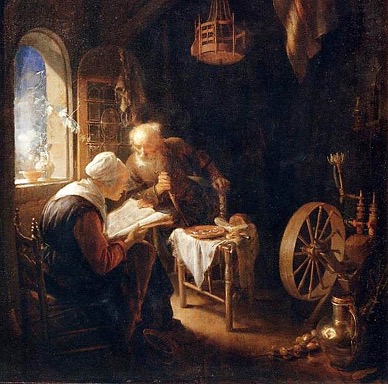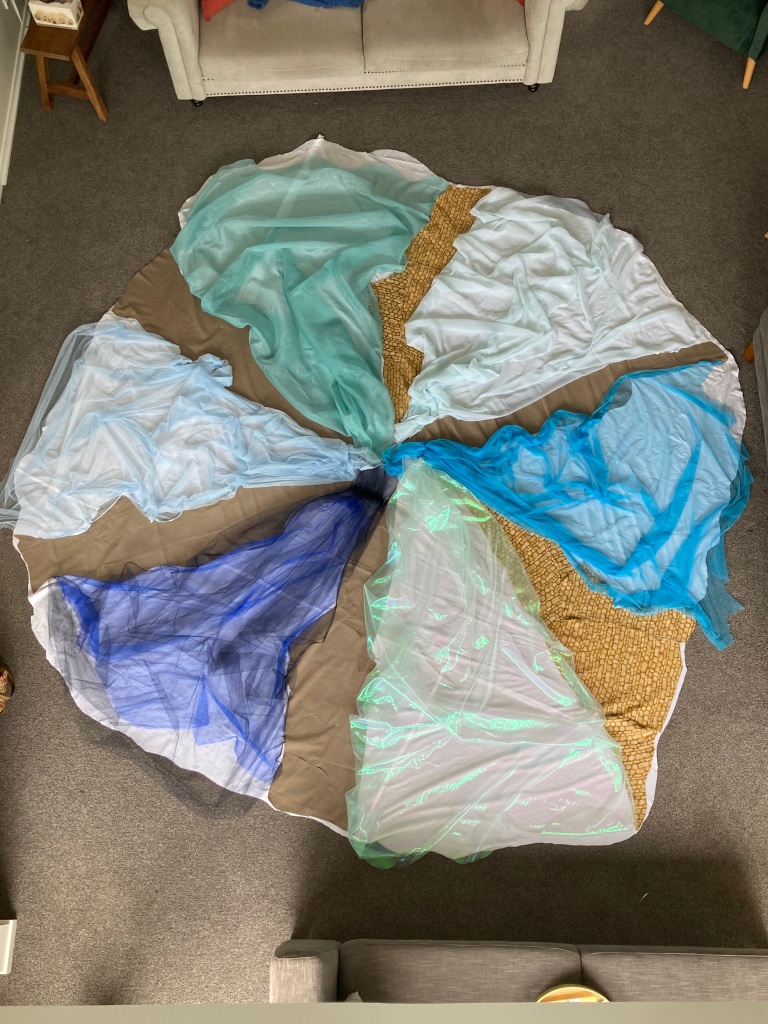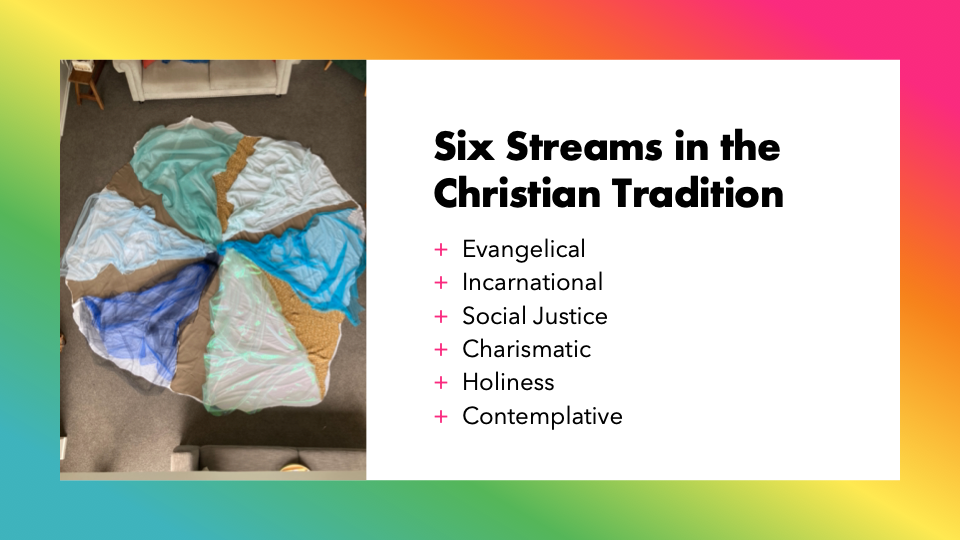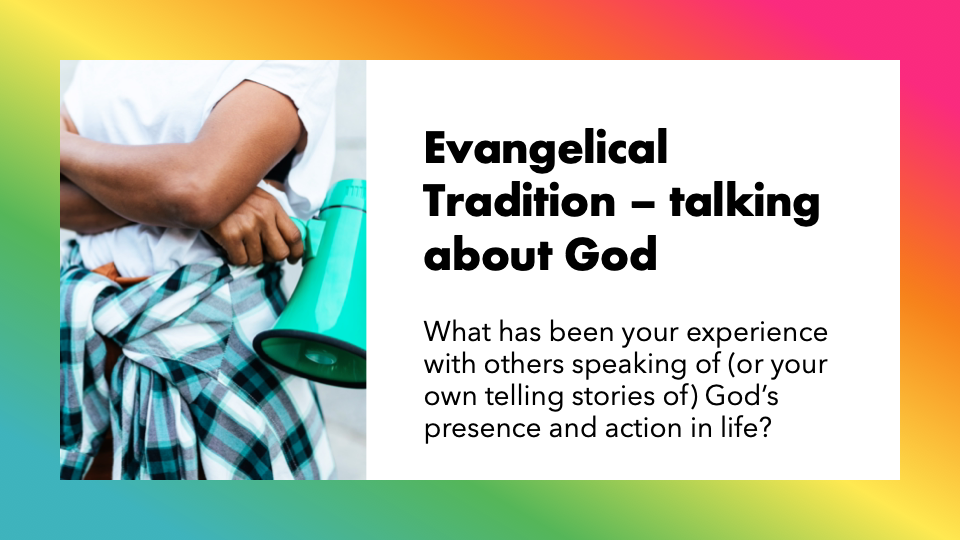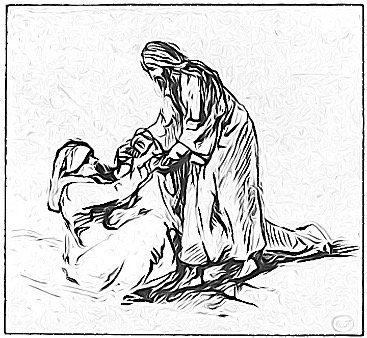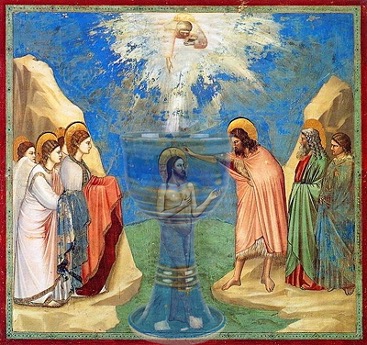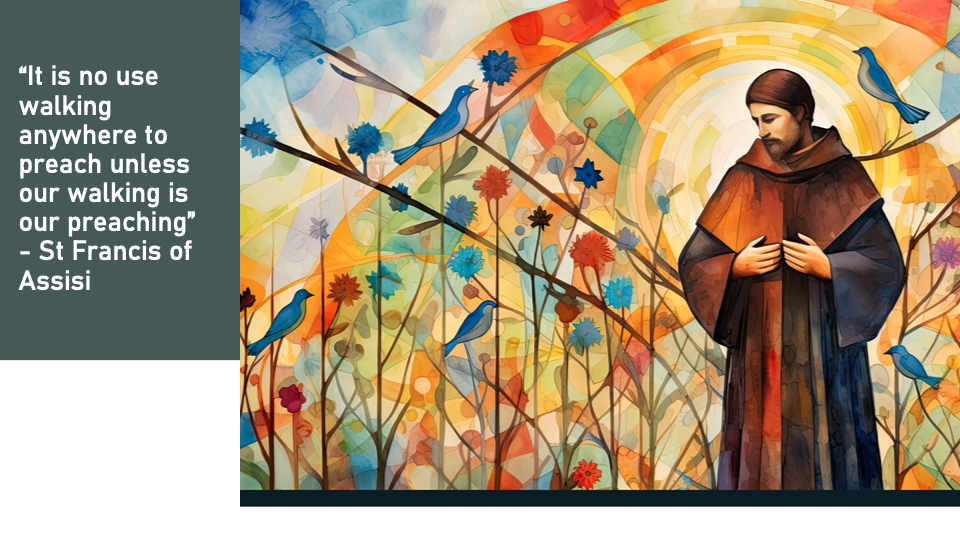
This reflection was offered in two parts. The first part is in response to this passage in John 4
This story from John’s version of the gospel offers us a clear and beautiful example of the evangelical tradition in action. The woman meets Jesus – a chance encounter – and they have a conversation which has a level of depth and significance that has captivated and still delights and amazes followers of Jesus and biblical scholars alike.
This conversation effects a deep change in the woman. She came to the well to draw water, she returned to the town leaving her empty water jar behind, but full – full and overflowing – with wonder and hope. She tells people about Jesus, inviting them to come and see for themselves… he could be the messiah. He might be, maybe. What do you think? She asks.
And they come. They listen, they interact and they want to spend more time with him.
This is the heart of the evangelical stream: the practice of telling your story of transformation through your encounter with Jesus.
In the 80s I remember reading a heap of books by Christians who had grown up into a world of violence, drugs, gangs, crime, communism, and then they had been introduced to Jesus and their lives had changed. They got clean, got a regular job, got married, and then returned to their former world to share the good news of hope and love.
The story was moving and powerful, always, and the transformation was stunning. Jesus saved my life, they’d say, quite literally. If I had stayed on that path, I’d be dead by now…overdose, gang violence, suicide, alcohol poisoning…if someone hadn’t told me about God’s love, and shown me how God loves me right here, right now, I’d be dead.
It’s a long time since I was at that Billy Graham rally, and I was already a Christian when I went, so it wasn’t a conversion experience for me then. I don’t remember how he told his story, although I’m pretty sure it didn’t start with drugs, sex and rock ‘n’ roll. But it was still his story. His personal testimony, blended with some selected scriptures to illustrate how he understood salvation to work and what we, as individuals needed to do to make sure we were in on that.
I do remember hearing a youth leader give her personal testimony at a camp one time, and it began like this: After going astray in my early years, experimenting with drugs and alcohol, I gave my life to Jesus when I was seven.
And I recall many late-night conversations over coffee with teens who had grown up in a Christian family where going to church was part of their weekly rhythm, where they couldn’t remember never knowing about Jesus, and they had this sense of lack. They didn’t have an interesting or exciting conversion story to tell. There wasn’t a before and after moment for them. There was a growing familiarity with stories from scripture, a kind of inbuilt understanding of church as a place, an organization, a community and an obligation. It’s not that their faith wasn’t real, or wasn’t theirs… they were clear about what and how they believed separate from what and how their parents believed. It’s not that their faith wasn’t personal or important to them.
It just wasn’t very dramatic. It wasn’t a conversion story.
And a testimony seems to need to have some drama, doesn’t it?
We seem to think our stories need to bring the other person into a moment of decision, a life changing decision. When you meet with friends, when you catch up with each other at morning tea, or at meeting, or a working bee…what kind of stories do you find yourself telling?
How do our normal conversations speak of faith when we aren’t giving a testimony, or doing a bible study? How does the written word of the bible, and the Living Word of Jesus the Christ become a natural part of our everyday spoken words?
Let’s pause for prayer and reflection as we listen to the music and to the inner prompts of the Holy Spirit.
……….
The second part of the reflection is offered in response to this poem: St Francis and the sow, by Galway Kinnell
Francis of Assisi is the saint the Renovare folks have associated with the evangelical stream. It’s taken me a while to figure out how they came to that.
Especially as Francis is credited with this saying:
Preach the gospel always; if necessary, use words.
There is something very appealing about this saying – if I think that sharing the good news of my faith is supposed to take the form of preaching or witnessing or bringing another person to a conversion encounter with Christ, then the idea that I might preach the gospel by my living takes some of the pressure off.
There’s a couple of issues with it though. Firstly, there’s not a shred of evidence recording him ever saying it. And secondly, Francis was fully committed to preaching with words.
He was so committed to it he preached to the birds. His whole community of monks preached. Their vow of poverty meant that they had nothing except what people gave so they travelled the countryside preaching and praying, blessing and begging.
In the poem, we hear of how Francis was called upon to pray for the sow who had given birth to a brood of fourteen piglets, but her milk wouldn’t flow to feed them. The poet begins with the image of a flower bud, and tells us this is a universal image…in everyone and everything is the furled bud, the flower waiting to unfold all its beauty to the world. The bud is a symbol of hope hidden and held, needing encouragement, needing blessing and warmth to give it courage, so it may open.
We are all like this, says the poet, all like the furled bud who needs to be reminded, ‘you are lovely’.
And with Francis’ touch on the sow’s furrowed brow, with his blessing reminding her, she relaxed into her loveliness and all that beauty flowed out to the joy and delight of the piglets, the saint and the farmer. This is a story of preaching the gospel with and without words – and that reflects something that Francis did say:
It is no use walking anywhere to preach unless our walking is our preaching.
Your whole life speaks. Your smile. Your hug. Your stories. Your silence. Your singing, your moving, your sharing, your listening…
And none of that will be perfect. Sometimes there will be unkind words, withheld touch, angry stories, stony silence. The issue isn’t about how good are you, but are you growing?
You may not have a conversion story to tell. You may not have done anything that sounds like mission. You may have a horror of even sounding like you are preaching or getting into a debate about faith and the meaning of life.
But have you grown in love? Are you growing in love for God, neighbour and self? Are you growing to trust yourself to God and to the world, so that you joyfully bring forth the quiet, ordinary beauty of your soul’s unfolding? Because it is from that place within you that we are confident to encourage and bless the unfolding in others.
This is how your walking becomes your preaching, and your talking and your touch becomes a blessing.
The practices of faith – like dwelling in scripture, praying in words and in silence, resting in God’s presence – return us again and again to receive this blessing, this touch, this encouragement and reminder from Jesus so that as we walk, talk, listen and touch we also bless, encourage and remind.
And life flowers in us and around us when we do this.
Let’s pray.
